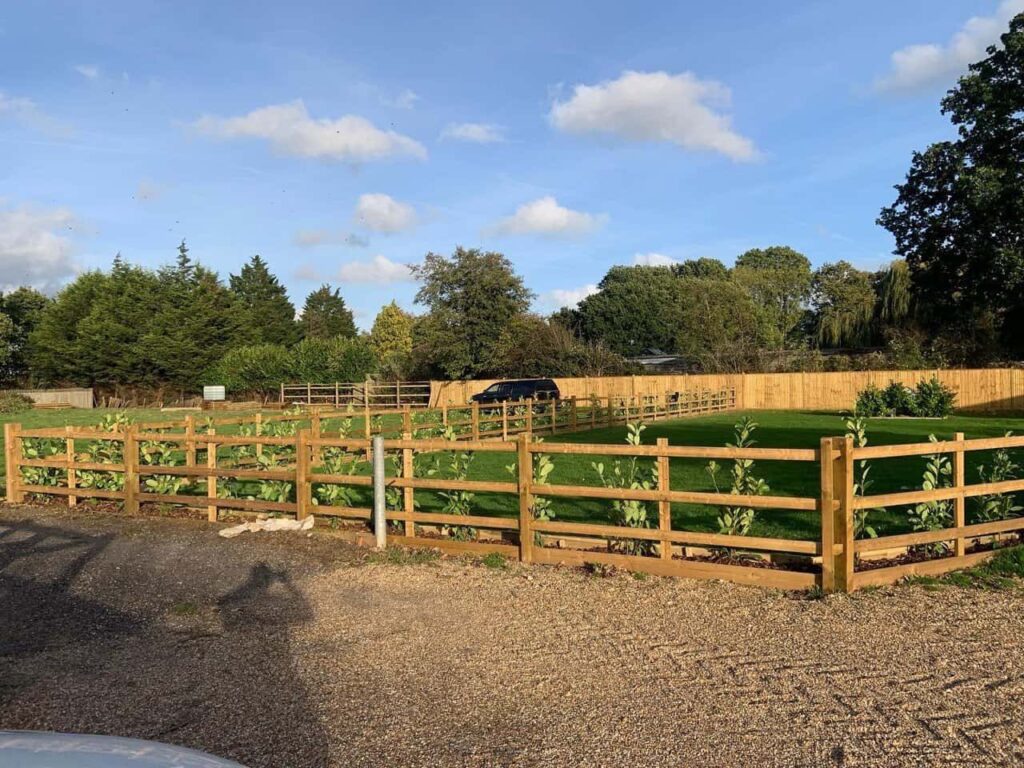How to Diagnose a Failing Fence Before It’s Too Late
Fences provide security, privacy, and enhance the aesthetics of your property. However, like any outdoor structure, fences can wear down over time. Regular inspections are essential for diagnosing potential issues before they become major problems. In this post, we’ll guide you through how to identify signs that your fence may be failing and offer advice on how to address these issues promptly.
At Fast Fix Fencing Thetford, we specialise in providing high-quality fencing services in Thetford, Norfolk. Whether you’re looking to repair or replace your fence, it’s important to stay on top of maintenance to avoid costly repairs in the future.
1. Inspect for Leaning or Tilting Posts
One of the most obvious signs of a failing fence is when the posts begin to lean or tilt. This can happen due to weakened foundations, water damage, or the natural effects of time. Leaning posts not only compromise the appearance of the fence but also reduce its structural integrity.
Key Causes of Leaning Fence Posts:
- Rot or Decay: Wooden posts can rot over time, particularly if they are in contact with the ground and not properly treated.
- Poor Installation: If the posts were not set deep enough or secured correctly during installation, they may eventually begin to lean.
- Soil Erosion: Heavy rainfall or flooding can cause the soil around fence posts to erode, making them unstable.
What to Do:
- If you notice leaning posts, it’s important to check for signs of rot or damage at the base. Professional repair or replacement may be required to restore stability.
2. Look for Broken, Loose, or Missing Fence Panels
Fence panels are vulnerable to wear and tear due to exposure to the elements. Storms, strong winds, and general ageing can cause panels to break or become loose. Missing or damaged panels not only decrease the security of your property but can also diminish your fence’s appearance.
Common Causes of Damaged Panels:
- Wind Damage: Strong winds can cause fence panels to break or blow out of place, especially if the fence was already weakened.
- Wood Rot: Wooden panels are especially prone to rotting if they are exposed to water or moisture for extended periods.
- Pest Infestation: Termites or other pests can damage wooden panels over time, leading to structural failure.
What to Do:
- Regularly inspect the condition of your fence panels, checking for any signs of cracks, warping, or missing sections. If panels are damaged beyond repair, it’s advisable to replace them as soon as possible.
3. Check for Rust or Corrosion on Metal Fencing
If your fence is made of metal, such as wrought iron or chain-link, rust or corrosion can significantly reduce its strength and appearance. Rust not only weakens the structure but also leads to further deterioration if not addressed promptly.
Common Causes of Rust and Corrosion:
- Exposure to Water and Moisture: Prolonged exposure to rain, snow, or humidity can cause metal fences to rust, especially if protective coatings have worn off.
- Lack of Maintenance: Metal fences require regular cleaning and maintenance to remove dirt and prevent corrosion.
- Age of the Fence: Older metal fences, especially those with poor coatings, are more susceptible to rust and decay.
What to Do:
- If you notice any signs of rust or corrosion, it’s important to clean the metal surface and apply a rust-resistant paint or coating to prevent further damage. For severely corroded sections, replacement may be the best option.
4. Inspect for Cracks in Concrete or Brick Fences
Concrete and brick fences are built to last, but over time they can develop cracks or chips due to pressure, weather, or ground movement. These cracks can affect the overall stability of the fence, especially if they compromise the foundation or support structure.
Common Causes of Cracks in Concrete or Brick Fencing:
- Freeze and Thaw Cycles: Water trapped in cracks can freeze during cold weather, expanding and causing further damage.
- Foundation Shifts: Ground movement or settling can cause concrete or brick fences to shift, leading to cracks.
- Impact Damage: Accidental impacts, such as from vehicles or heavy objects, can cause physical damage to the structure.
What to Do:
- For minor cracks, you may be able to fill the gaps with a high-quality masonry repair compound. However, larger cracks or damage that affects the structural integrity of the fence may require professional repair or rebuilding.
5. Check for Invasive Growth and Weeds
Over time, plants and weeds can invade your fence, especially wooden fences. While some greenery can add charm, invasive plants like ivy or climbing vines can cause significant damage if allowed to grow unchecked.
Common Causes of Invasive Growth:
- Lack of Maintenance: Weeds and plants growing near your fence can gradually push against or even penetrate the structure.
- Moisture Retention: Overgrown plants can trap moisture against the fence, causing wood to rot or metal to corrode.
- Root Damage: The roots of large plants or trees can cause physical damage to fence posts or panels.
What to Do:
- Regularly trim any plants or vines that grow near or on your fence. If invasive roots are causing damage, you may need to dig them up or take steps to prevent further growth.
Conclusion
Diagnosing a failing fence early is key to preventing further damage and avoiding costly repairs. Regularly inspect your fence for common signs of wear and tear, such as leaning posts, damaged panels, rust, cracks, or invasive growth. Addressing these issues promptly will not only preserve the aesthetic appeal of your fence but also ensure its functionality and security.
At Fast Fix Fencing Thetford, we specialise in fence repairs and installations throughout Thetford, Norfolk. If you suspect your fence is failing or need professional assistance with repairs, don’t hesitate to contact us. Our expert team will help restore your fence to its optimal condition, keeping your property safe and secure for years to come.
Contact us today for a consultation and to book our professional fencing services!
Call us on: 01842 771 184
Click here to find out more about Fast Fix Fencing Thetford
Click here to complete our contact form and see how we can help with your fencing needs.

